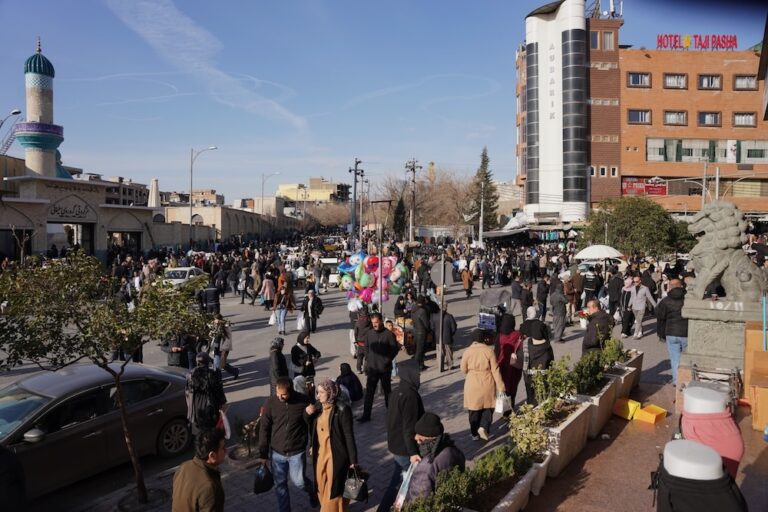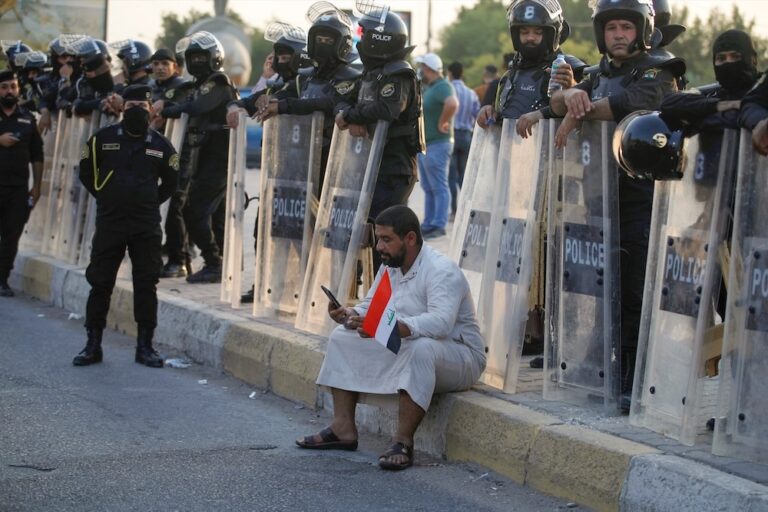The anniversary of Osman's murder comes at a time of tension as journalists are constantly the targets of death threats, acts of intimidation, physical attacks and murder attempts.
(RSF/IFEX) – 4 May 2011 – A year has passed since Sardasht Osman was murdered. A year since this 23-year-old journalist was kidnapped by gunmen outside the foreign language department at Salahaddin University in Erbil on 4 May 2010 only to be found dead four days later in Mosul with a bullet in his head. A year of freedom and impunity for his murderers.
Reporters Without Borders pays tribute today to Osman, who despite his youth had already written many articles, including an op-ed piece for the Kurdistan Post at the end of 2009 entitled, “If only I were Massoud Barzani’s son-in-law.”
Our thoughts are with his family, friends and colleagues on this sad anniversary. At the same time, we question the Kurdistan Regional Government’s determination to shed light on this murder and condemn the lack of transparency surrounding its investigation.
The anniversary comes at a time of tension. The security forces of the two political parties that control Kurdistan’s government keep harassing journalists covering the street protests that have been taking place in the region since mid-February. Press freedom violations have increased in recent weeks. Journalists are constantly the targets of death threats, acts of intimidation, physical attacks and murder attempts. Their offices have also been attacked and ransacked.
Kurdistan’s president, Massoud Barzani, appointed a special commission under interior ministry control to investigate Osman’s abduction and murder. But Osman’s family quickly challenged the commission’s independence.
During a fact-finding visit to Kurdistan in July 2010, a Reporters Without Borders delegation tried to establish the status of the investigation and sought in vain to meet with members of the commission. None of the people the delegation spoke to was able or willing to name any of its members. The flagrant lack of transparency was highlighted in the report that Reporters Without Borders released on 4 November.
The commission issued its initial findings on 15 October. It said in a press release that Osman’s murder had nothing to do with his activities as a journalist. It stemmed, it said, from his refusal to cooperate with Ansar Al-Islam, a radical Islamic group linked to Al-Qaeda. Hicham Mahmoud Ismail, a driver and mechanic living in Beji who had been arrested on suspicion of carrying out Osman’s abduction, had confessed to transporting him from Shargat (near Tigrit) to Mosul at the group’s behest without knowing he was to be killed, the press release said.
The family immediately disputed the findings. “We not only reject the results of the enquiry but we also condemn its actions and voice our anger at these attempts to portray Sardasht as a terrorist who cooperated with Ansar Al-Islam,” the family said in a statement. “Anyone who knew Sardasht or read his articles knew that he was a secular person far removed from terrorist ideology.”
Ansar Al-Islam issued a statement on 23 October denying any role in his murder.
So, one year after his death, his murderers are still at large. And he is not the only young journalist to have been murdered in Iraqi Kurdistan in recent years. Soran Mama Hama, who worked for Lvin Magazine and who was also 23, was gunned down at his home in Kirkuk on 21 July 2008.
On 15 May, Reporters Without Borders will publish a Kurdish-language version of the Handbook for Journalists, which was produced in partnership with UNESCO. The Kurdish-language version is being brought out with help from the Aras publishing house.


